
W Virginia Takes Action Against Banks that ‘Boycott’ Fossil Fuels

Five major banking institutions are facing major penalties in the state of West Virginia based on their attempts to prevent investment in the fossil fuel industry. JPMorgan Chase, Wells Fargo, Blackrock, Goldman Sachs, and Morgan Stanley were banned from new state business following an investigation which exposed them as having “categorically limited commercial relations with energy companies engaged in certain coal mining.”
The move, made legal through a state law passed earlier this year, is expected to cost the banks up to $18 billion annually.
“At the end of the day, all we want is for banks to act like banks,” said West Virginia State Treasurer Riley Moore, who referred to the financial institutions’ boycott-like behavior as “economic extortion.”
West Virginia’s decision comes amid a GOP-led push to counteract the pressure on financial institutions and other companies to pursue “woke” stances on issues like climate change and firearms. Though West Virginia is the first state to take direct action against Wall Street financial institutions regarding their stance on climate change, Texas has passed a similar law banning banks from new state business for discriminating against gun makers.
Democrats are pushing hard for the elimination of fossil fuels, but what they often fail to mention is the impact on the coal mining industry – which accounts for more than 11,000 jobs in the state of West Virginia alone. Coal miner engineers make roughly $90,000 per year and the state earns hundreds of millions of dollars annually in severance taxes from coal extraction.
“Any institution with policies aimed at weakening our energy industries, tax base, and job market has a clear conflict of interest in handling taxpayer dollars,” argues Moore. “I simply cannot stand by and allow financial institutions working against West Virginia’s critical industries to profit off the very funds their policies attempt to diminish.”
All five of the banned banks claimed they were doing nothing to block investment in the fossil fuel industry and argued they were under pressure to do more to ease the transition from coal to renewable energy.
“BlackRock does not boycott energy companies,” said a spokesman. “And we do not pursue divestment from sectors and industries as a policy.”
“This decision is shortsighted and disconnected from the facts,” added a representative for JPMorgan Chase. “Our business practice are not in conflict with this anti-free market law.”
US Bancorp narrowly escaped the ban by agreeing to remove policies against financing coal production.
Author’s Note: The banks impacted by West Virginia’s ban are some of the largest financial institutions in the world and they certainly have the power to buy enough of a company to control its board and then change its policies in order to restrict investments in coal, oil, and gas. Apparently this is what they have been doing and West Virginia is right to put a stop to it.
Sources:
West Virginia bars five financial firms for deemed fossil fuel ‘boycotts’
West Virginia Won’t Do Business With Wall Street Banks That Boycott Fossil Fuels
West Virginia Penalizes Banks Including JPMorgan, Goldman for Coal ‘Boycotts’


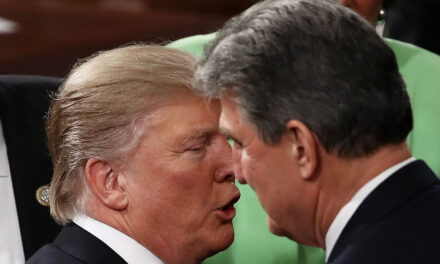
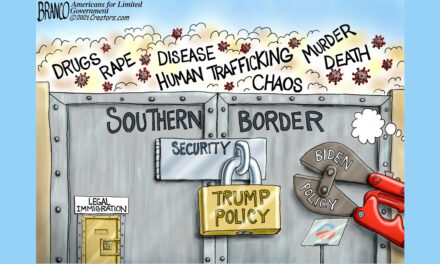


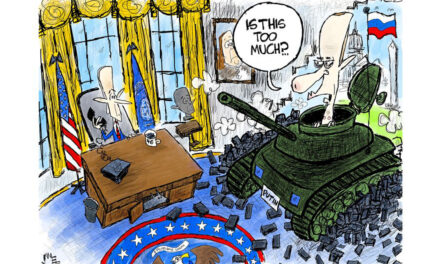





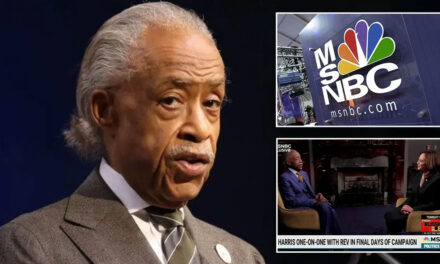





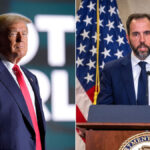







WVA better not trust Manchin to help. He got snookered by slimy Schumer over pipe lines which will never happen. Mzanchin should have held back until at least a major oil pipeline is built as oil and gas drilling was underway. Never trust s rat bastrd like Shumer p
Well, as long as it’s legal on both sides I guess that’s just grand.
Coal is what got part of my family started in America; Kingston P A. Our goal; leave the fucking mines asap.
I would love to see how Mr. Moore computed the $18 billion per year lost to these companies. Looks like mystery math to me, but makes good politics.
First, West Virginia has a GDP of about 80 billion per year making this 25% of their total GDP. Wow. that might be believable, but there’s only about 40 billion in bank assets in all of the West Virginia banks. That gets less believable. Further, the list does not include the two largest banks in West Virginia.
Bottom line is that it’s legal. And I hope that if we’re aggressively looking to shut down coal that we help the industry transition, especially the workers. Whether Biden’s administration takes active measures or not, Coal is declining industry and it will never come back.
If we were smart, we would transition them into solar manufacturing where the majority of our panels are currently made in China. Probably going to be a much bigger industry than coal any day now. and will be sustainable, unlike coal.
.
Stetson, you either have too much time on your hands, or are exceptionally gullible. This assessment is based on your very many posts on multiple websites lately.
Actually, the $18 billion assessment is based on West Virginia treasury secretary, Mr. Moore. His press release is what forms the basis of all the stories that you read.
As to the rest of the story, as I said, as long as it is legal, both sides can do what they want to do.
And yes, and a down market I do find myself with a little bit of extra time on my hands. But gullible? I noted a number of facts that would appear to make Mr. Moore’s number interesting. It would appear to me to be pretty hard to get $18 billion a year out of a total asset base of around 40 billion. That’s all I was saying. Without looking at the math closer, I have not a clue. But it is interesting.
At the beginning of the heat wave, I did buy a bunch of first energy stock in that it was somewhat depressed. And I expect some pretty good summer revenues. Made 6% in less than 72 hours. But dividends are coming so I may hold till September. They burn less cool too and serve areas really close if not into West Virginia. Uh Oh.
Again, I think both sides I’ll probably within their legal rights and I hope they work it out.
Well I was right and I was wrong about first energy in West Virginia. They are indeed in West Virginia and service sizable portion of the state. However, West Virginia’s energy is 89% coal, 2% hydro, And some other stuff. First energy has two coal plants and one Hydro plant. So I guess West Virginia is not coming after first energy and less they want to penalize them for other states
I guess you can say I’m not an environmental investor. 😉
And 100% hillbillies.
How many years I lived next to West Virginia, my sister still does. We used to revel in telling West Virginia jokes, I know a bunch, really good ones.
Then I realized that geographical jokes are really kind of racist. So I stopped. I miss those days but in reality, really not for me.
As a kid, we used to grab our dirt bikes and go up past Harpers Ferry to some really good old Quarries where there is a whole mess of keys that even at water level were larger than the largest dump truck you ever imagined. What fun.
Actually spend my wedding night way above the confluence above Harpers Ferry in a quaint old hotel. Only got there because the Bavarian inn in Shepherdstown had no room at the end… Guess we should’ve got reservations.
One time we biked the entire C&O canal and actually rode our bikes across the Potomac above Harpers Ferry in order to get to town. I think the scary part was instead of crossing the Rappahannock on bike which was impossible, I think we had to go across the train bridge, that was scary.
And there was the festival in Stumptown, All we had was a case of liberated pork chops that we treated for everything else we needed that weekend, waiting for Jerry Garcia, and almost getting run over while sleeping at the end of the stage field by a couple of Harley riders who felt so bad they shared their Quaaludes with us. They explained that this was their night off from the wives, we were young enough that we didn’t really understand that. Ah, the 70s.
I like West Virginia but I think they need to find their next industry. Sooner or later. Banning things, punishing people, block A’s, this stuff never works. The inevitable always comes. Even Donald Trump cannot bring callback to West Virginia and he tried
Oh go ahead and be racist. It’s ok. Some of my best friends are racist Good’ol West Virginia. Tell the jokes slow so the hillbillies can understand them
You can’t fix stupid.
Racism is deadly, hateful, and stupid.
The vast majority of overt Racists vote Republican. The party of Lincoln embraces them while damning the long vanished Dixiecrats in the ultimate hypocrisy and suggesting that somehow Democrats own systemic racism even though most extremist violence cones from the right.
All humans are created equal. You do not believe that. That’s un American.
Yes Kansas.
Ben doesn’t recognize sarcasm. He’s right. You can’t fix stupid
I find racism and sarcasm to be mutually exclusive. Racism is never funny.
MAWA. Never apologize for being white
AABT. Always apologize for being Tony.
I never have asked any person to apologize for their race. Some people are just born victims.
To do what Tony wants, it’s a lose-lose game. Someone has to go and there would be great loss implementing that. And if they bever were here, think of all the fantastic things we would never have. Starting with peanut butter and Southern culture.
The author claims that these banks are wealthy and “have the power to buy enough of a company to control its board…”, but isn’t that what the wealthy and the corporations have been doing for over half a century? It was not the People who decided to fight in an unpopular war in the 1960s, nor was it the people who decided to move jobs overseas to reduce costs and increase profits. The People had no choice in the deregulation of the financial industries. All of those moves were decided by Congresses paid for by the wealthy and powerful for their benefit alone. We need the poorer 90% of the People to start voting for candidates willing to buck the system, reinstate some regulations, and bring jobs back to our shores.
Now wait a second, it’s not that cut n dry that it’s Congress’ fault alone… Let’s use moving businesses overseas, which is not true, it’s moving factories overseas, at least in the beginning. Let’s just deal with that. You note it’s to reduce costs and increase profits. And yes. Congress approved it. But might you ask why it was banned to begin with in the land of the free and the home of the brave? And what it you did continue the ban — then do you ban the same products from foreign sources too? So isn’t that inflationary? And what about our exports? When we deny free trade, do you expect exports to go up or down?
No, it’s just not that simple, it’s very complex.
In the end, the market will seek the lowest cost at the highest quality. Value counts. So, simple stuff moves out, complex stuff stays. Third-world countries do simple stuff for cheap, start moving up to do more complex stuff. It’s the circle of life. Once Japan did cheap stuff, now they do complex stuff. Same with SK, and now China. Who’s next?
What we should be asking is 1) how to do we transition this work force to more complex stuff. Crikey, we have the internet, you don’t even 100% have to go to the city to get a high tech job. And 2) how do we increase our creative abilities in almost a factory-like process —- that’s the key I have been expressing for two decades —- the top economies someday will have figured that one out. That’s why emerging countries send their brain trusts here for education, we be good at high tech and science. But that’s where it ends, we do not have it as a work process…..yet.
Worse yet, I participated in the process of smart factories and watched as we took places that were a dozen football fields in size, and whittle them down to 1/20th of the size while producing more. We filled the space with labs and closed and sold the other labs. It’s the circle of manufacturing life. We didn’t even go overseas, except for plastic.
Here we were number one — in the world — and everything had plastic. But we could not compete in quality with Japan — they made more. So that one we imported. It’s a complex world.
IMO, in the future we will still have factories, but more complex ones. Once the process becomes “henry ford,” why not go to a cheap labor source —– like South Carolina….. or beyond. A little bit joking there. And our workforce with either get smarter or just accept a lower quality of life of low wages. Especially given less Unions. I tell young folks, go solar. It’s cleaner that coal and will give you a lifetime of work. From installation to creation —- and soon I hope —– factories too if we do here what we did with chips. For one more reason — supply chain —- where it might we worth if, national defense wise —– to subsidize. Like chips.